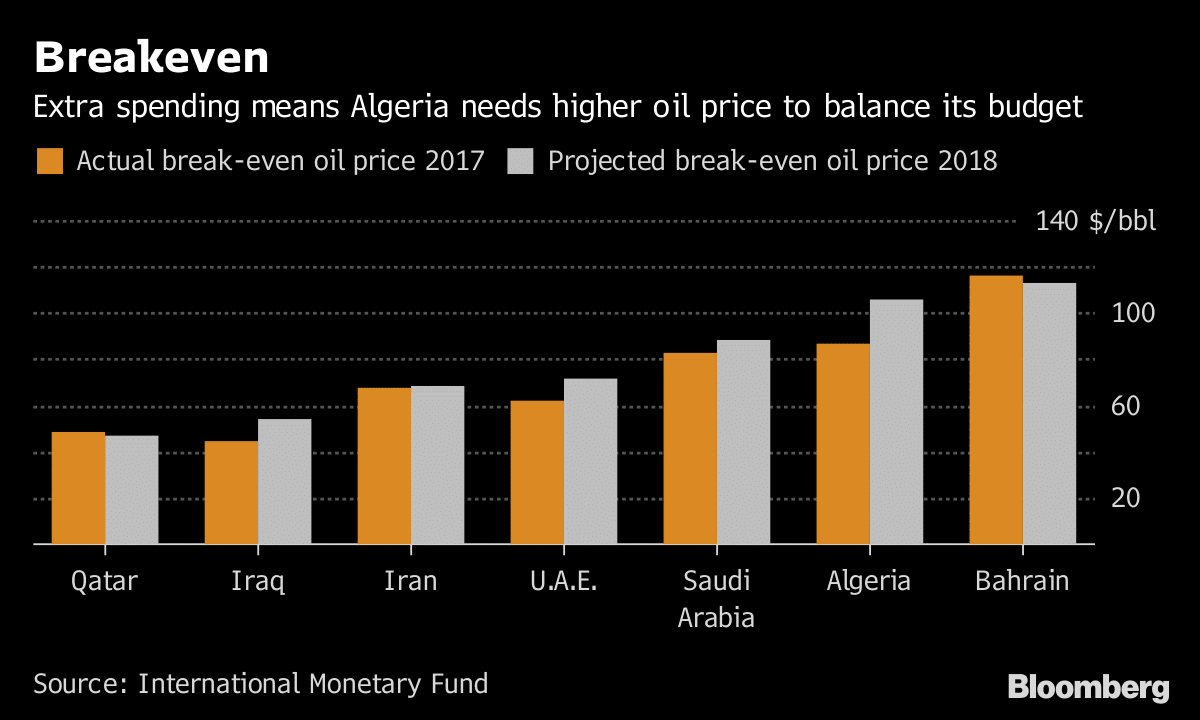OPEC member Algeria is looking to boost spending outlined in its 2018 budget by 6 percent, capitalizing on high oil prices ahead of presidential elections next year.
OPEC member Algeria is looking to boost spending outlined in its 2018 budget by 6 percent, capitalizing on high oil prices ahead of presidential elections next year.
A proposed amendment to the 2018 budget law would raise spending to almost 9.13 trillion dinars ($79 billion). The additional funds would be directed to the investment budget, which will rise 12 percent to 4.5 trillion dinars, according to a draft seen by Bloomberg.
Algeria, which relies almost entirely on oil and gas revenue for hard currency, has been struggling to narrow a budget deficit that had ballooned to over 15 percent of GDP with the plunge in oil prices that began in 2014. That slide had also nearly halved foreign reserves, sharply crimping the government’s ability to sustain costly subsidies that are key to maintaining social order in the North African nation.
To cover costs, the government laid out a plan that included borrowing from the central bank in order to avoid tapping international debt markets and imposed import restrictions to save hard currency reserves. Analysts warned the strategy posed risks, such as currency depreciation and high inflation.
Social Tension
The draft law didn’t detail where the additional money would come from or how it would be spent and a finance ministry official declined to comment. Analysts said, however, that the spending increase was most likely to be funded by the central bank and timed to coincide with the upcoming presidential elections in which aging and ailing President Abdelaziz Bouteflika is expected to seek a fifth term with no successor in sight.
“In typical Algerian style, they are being extremely opaque about the sources of financing, but it can only be the central bank financing and the rise in oil prices,” independent North Africa analyst Riccardo Fabiani said. “With the debate around a fifth term for Bouteflika, the concern now is to smooth over rising tensions within society.”
Thousands of teachers and doctors have staged strikes since the beginning of 2018, demanding better pay and work conditions. The government’s response, which included bringing in a well-known religious figure to mediate with doctors, has had mixed results.















